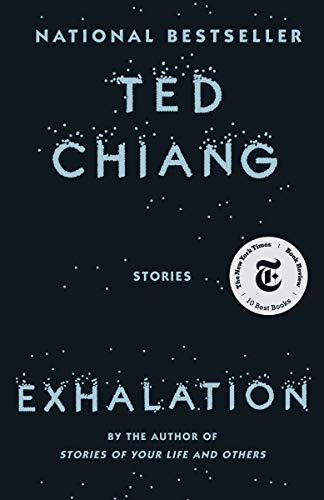enne📚 reviewed Exhalation by Ted Chiang
Exhalation
5 stars
Strong recommend from me. Short story collections are often hit or miss, but this entire collection was uniformly really great and had quite a few that will stick with me for a while.
Two stories in particular that I liked a lot:
(1) The Lifecycle of Software Objects
This is a novella that follows the lives of two people and the AIs that they are raising. What interested me here is that this the story deals with the AIs as sentient beings who are fresh to the world. Like children or animals they need to learn how to navigate a complicated human world, but also have their own needs (and relationship to those needs). It investigates what it means to raise and care for such an AI, especially in a world of capitalism and platform obsolescence.
For me, this is a refreshing point of view in treating AIs with respect, …
Strong recommend from me. Short story collections are often hit or miss, but this entire collection was uniformly really great and had quite a few that will stick with me for a while.
Two stories in particular that I liked a lot:
(1) The Lifecycle of Software Objects
This is a novella that follows the lives of two people and the AIs that they are raising. What interested me here is that this the story deals with the AIs as sentient beings who are fresh to the world. Like children or animals they need to learn how to navigate a complicated human world, but also have their own needs (and relationship to those needs). It investigates what it means to raise and care for such an AI, especially in a world of capitalism and platform obsolescence.
For me, this is a refreshing point of view in treating AIs with respect, especially in the context of more cynical stories (see: Black Mirror's rampant AI abuse). I would also be curious if this story lands differently for folks who are parents.
(2) The Truth of Fact, the Truth of Feeling
This short story has two narratives: one follows a journalist writing about a new technology that allows one to recall recorded memories instantly, and is juxtaposed with a second story about colonialism injecting writing upon an otherwise oral culture.
The metaphor of how the technology of writing already changes the way we think and what we consider to be truth was a really effective context to place the more hypothetical pondering about how we might also be affected by some new technology about memory and recall.
A quote: "And I think I’ve found the real benefit of digital memory. The point is not to prove you were right; the point is to admit you were wrong."


